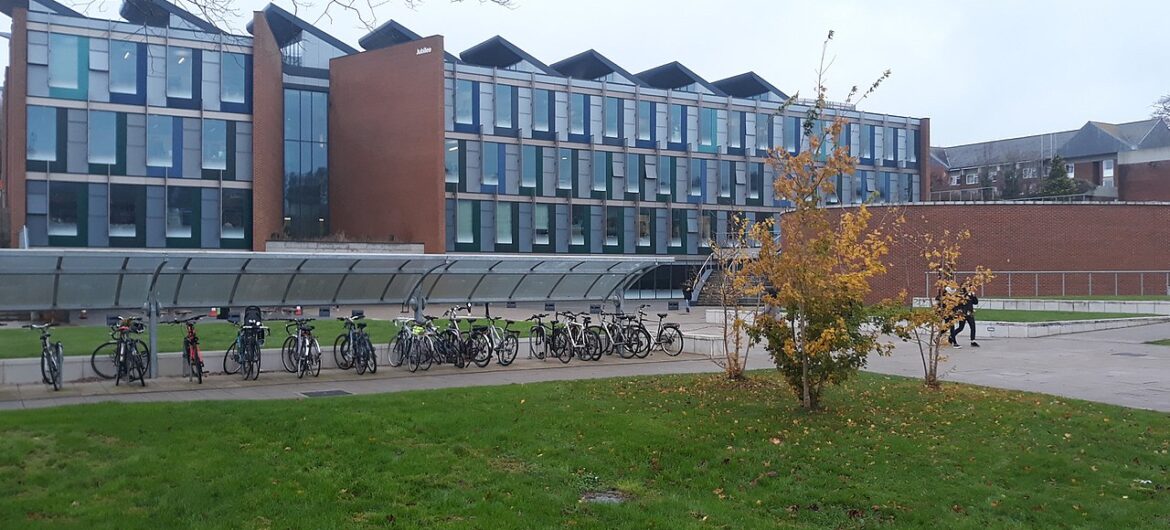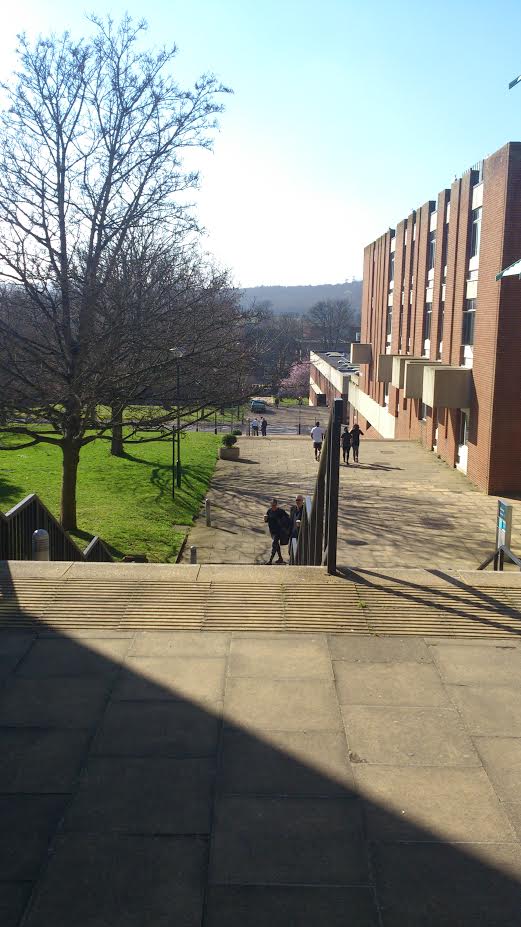Words by Ellie Doughty
Last night I had the joy of sitting down – electronically – with Leila Grossmark, lead campaigner of No Beef Sussex and one of her fellow campaigners, Spike Asri.
They are campaigning to have beef and lamb removed from campus food outlets in an SU referendum vote closing soon. We chatted about their campaign, what it would mean for them and for Sussex if the vote passes.
Hi guys, thanks so much for joining me! I’m so interested to know more about your campaign. Who came up with the idea behind No Beef Sussex?
Leila: I started the campaign at Sussex, technically, but there’s an online UK campaign called ‘No Beef’, they have their own website, and I was spurred on by that and seeing universities like Cambridge and Goldsmiths implement it. So I reached out to loads of people, like Spike, and they are working with me to get it going.
Ahh okay, I wasn’t aware! What’s the thinking behind it?
Spike: Beef and lamb are the most resource intensive meats, and so getting them removed from Campus is a good step towards recognising the climate crisis beyond tokenist measures. It’s also a chance for the University to make their student body conscious of food security, one of the biggest challenges we’re going to have to face moving forward in the climate crisis.
Leila: One of the key things for me, is how much Sussex talks about being environmentally aware, declaring a climate emergency in 2019, but then not doing much that we can see to change things. They need to push forward and make larger steps in trying to make a big impact on the carbon footprint of the university.
How many people are on your team?
Leila: There are about six or seven in our core group, but after reaching out to other societies like the Vegan Society or Extinction Rebellion Society we managed to get a big group of lots of people who were interested in what we were doing.
Spike: Leila really brought everything from scratch and developed everything before we stepped in to help, so credit where credit’s due…
How have you advertised the campaign and garnered support?
Leila: We couldn’t advertise much because of the political nature of the campaign on social media, but we did a lot of flyering, a poll on Instagram to see how many people had voted… it’s hard to tell how much support the campaign has because the SU can’t tell us how the votes are going before the results come out.
How do you think this would impact the university community if it were passed and implemented?
Spike: It’s quite a big milestone in showing the desire of the Sussex student body in pushing climate action, and it would be an achievement if it passed, it’d be irrefutable evidence to the faculty that the student body is taking climate issues seriously and that moving forward we need more drastic measures.
How do you respond to critics who suggest this would limit people’s personal freedoms in choosing what they eat?
Leila: I’ve responded to so many comments on Instagram about this, and saw the huge argument on Sussfessions about it… I think it’s silly, it can be sold at Co-op, people can have it delivered, go off campus, it’s not limiting anyone’s personal freedoms. The University itself has declared a climate crisis, so they have to take action on this. I did also hear some protests about the Jewish and Muslim communities being limited further in their choices as they don’t always eat pork, but as a member of the Jewish community I think that’s kind of rubbish. Yes, some of the community don’t eat pork, but a large part of it is taking care of the world and the environment. There is also the question of whether the beef and lamb is kosher or halal on campus anyway, but I don’t know for sure.
If this motion is passed in the referendum, do you have plans for any further initiatives? If so, what are they?
Leila: We’re in really early talks with a company that tries to make certain vegan and vegetarian menus more sustainable, so I’d like to work with them on that. But even if the referendum passes, not much will happen yet. All it means is that the SU will lobby the University to take some action, but it’s a long process.
If it doesn’t pass in the referendum will you try again, or perhaps try something a little different?
Leila: If it was clear that a lot of people supported it, but the vote fell just under the 10% threshold then maybe I’d try again next term. But if not I’d definitely like to look into that company I mentioned and maybe exploring other options like approaching Adam Tickell, or something.
Thank you so much for talking to me! To round things off, what’s something you guys have personally taken from the campaign?
Spike: What I think I’m most likely to take from the campaign is the power of social media campaigns, I mean Leila did brilliantly at making information accessible even to people like my friends who are ardent meat eaters and support the campaign.
Leila: I’ve really learnt a lot about student participation in SU referenda, like the process, how many people vote etc. Last year only 8.5% of students voted and that’s super low… Sussex has a reputation for being so political, with students engaged in important issues, so getting people engaged and to use their votes (even if it’s a no..) is important! Please vote!
Picture Credit: Ak689




